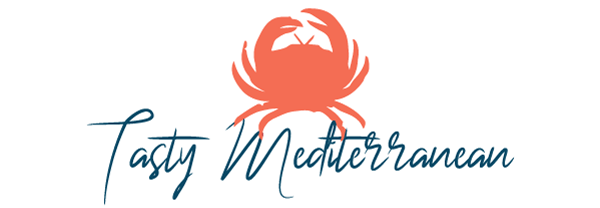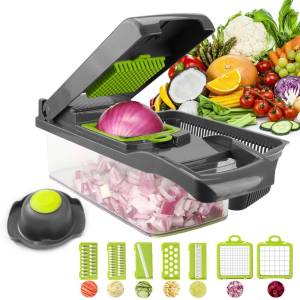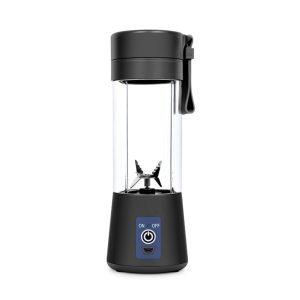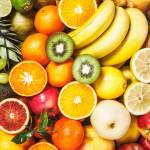When it comes to improving your health through food, the Mediterranean diet takes the top score.
Studies show that the Mediterranean diet protects your heart, reduces the risk of cancer and diabetes, slows cognitive decline, and can even prolong life. U.S. News & World Report has placed the Mediterranean diet at the top of its annual diet rankings for five consecutive years.
This diet is rich in fruits, vegetables, nuts, fish, whole grains, and olive oil. Although some of the components of the diet can be expensive, there are many ways to keep the grocery bill within reasonable limits. You don’t need to spend a lot of money to eat Mediterranean-style. Historically, the Mediterranean diet was a cuisine based on inventiveness. It was peasant food.
You don’t need to spend a lot of money to eat Mediterranean-style
Frozen Vegetables And Fruits
Fruits and vegetables are full of fiber, vitamins, minerals, and antioxidants, properties that improve our health. The general conception is that, when frozen, they lose properties and quality.
But scientific studies do not support this idea: frozen foods often have equivalent or even better-preserved nutrients than fresh fruits and vegetables, as they are usually harvested and frozen with maximum freshness when the nutrients are at their highest levels and do not lose properties during transport and storage. In fact, in some cases, frozen products are more nutritious than fresh produce on its fifth day of storage, either in the store or at home.
Of course, the nutrients and properties of frozen foods begin to be lost when they are in our freezer for more than a year. Frozen vegetables are a very valid option to save money, not waste food and take care of yourself. Frozen vegetables that can save the month: vegetable stew, salad, broccoli, cauliflower, carrot, onion, and peppers cut and ready to sauté.
Canned Vegetables
Jars of peas, carrots, corn, beets, and canned beans are good options to have in the pantry and use at our convenience these months.
As with frozen vegetables, there is a perception that they lose properties by going through this minimal processing, but it is also proven that this is not the case.
Just make sure that these jars have only the vegetables, water, and a pinch of sea salt, and not other ingredients. Also, the tomato jars in pieces, chopped or crushed, will save us from any trouble.
Fresh Fruits And Vegetables
The pumpkin, when it is in season, usually costs less than € 1.5 per kilo and lasts a long time in our pantry or refrigerator, so it is an economic and lasting resource from which we can get a lot of it. As for fruits, the cheapest on the market and throughout the year are, in this order: bananas, oranges, natural pineapple, apples (the Golden variety is the cheapest), and pears.
Canned Fish
In the Mediterranean diet, it is recommended to eat fish or seafood twice a week for good reason: fish and shellfish are loaded with protein, vitamins, and nutrients, and can lower blood pressure and contribute to reducing the risk of suffering a heart attack or stroke.
Fish is also an abundant source of omega-3 fatty acids, the healthy fats that are crucial for brain and heart health. Although fresh fish can be expensive, canned fish is an inexpensive alternative. In addition to tuna, cans of sardines, anchovies, salmon, and herring are worth trying
Vegetables
Legumes, in addition to providing us with quality vegetable proteins and fiber, are one of the most complete and economical options to take care of our health. Chickpeas, beans, lentils, and red lentils are cheap options to have in the pantry and go using during the coming months.
You can buy them canned, previously boiled and ready to use, or raw. The second option will always be cheaper (the kilo of chickpeas costs less than € 2), while the first will save you time (a large jar of cooked chickpeas, about 500 grams, costs between € 0.45 and € 3, depending on its origin).
Beans
Canned or dried, beans are an incredibly versatile and inexpensive protein source that constitutes a staple of the Mediterranean diet.
Try putting a cup of cooked lentils or chickpeas into a salad, or replace ground beef with black beans in chili, tacos, or pasta sauce. You can also crush all kinds of beans to make delicious spreads and dips, such as hummus and fava.
Prepare an easy and delicious snack: rinse a can of chickpeas, mix them with extra virgin olive oil, sprinkle with salt (or other spices), and roast them in the oven at 425 degrees for 20 or 30 minutes or until they are crispy.
Salads
When choosing green leaves to accompany the dishes or create salads, keep in mind that buying whole buds or a tray of endive or endive, for example, will always be cheaper than buying the salad cut and washed in bags.
In addition, the buds and whole romaine lettuce will last longer in the fridge, since it is not cut or processed, but remains in its same trunk and keeps its heart intact while it is consumed. Other options that can come both in bags and in bulk and that are also economical are chard and spinach. None of these options (spinach, chard, romaine lettuce, endive, endive with its trunk, whole iceberg lettuce) exceed € 2 per bag or unit.
To Make Homemade Doughs
Dry or fresh yeast, as well as flours (whole wheat, spelt, rye and oats), always have cheap prices (less than € 2) and with these ingredients, you can make recipes for homemade bread, pizza doughs, or healthy cakes.
Snacks
Rice and corn pancakes, despite being minimally processed, do not carry unhealthy ingredients and are inexpensive. Other inexpensive and healthy snacks are olives, puffed brown rice, applesauce, and nut cream, such as peanuts.
Nuts And Seeds In Bulk
The Mediterranean diet includes a variety of nuts and seeds, such as almonds, cashews, chestnuts, hazelnuts, pine nuts, pistachios, pumpkin seeds, sesame seeds, and sunflower seeds, and walnuts. Nuts and seeds are extraordinary sources of protein, nutrients, and omega-3 fatty acids, and have been linked to a reduced risk of cancer, heart disease, and diabetes.
However, buying packaged nuts and seeds can quickly raise the cost of purchasing. Instead, buy products in bulk, as you can often find big savings and buy only what you need.
Try sprinkling sunflower seeds on a salad, crushed nuts on roasted vegetables, or pistachios on a cereal-based dish, such as pilaf and couscous. And don’t forget that a handful of nuts can be a hearty and healthy snack.
Other Economic Products
Apple cider vinegar, unsweetened vegetable broth pills, mustard to flavor our dishes, gomasio (mixture of sea salt, sesame, and seaweed), sauerkraut, tofu blocks, textured soy, and spices such as curry powder.
In addition to these economical foods, all seasonal products, as well as local and proximity products, will be cheaper. It is also a good option to take advantage of weekly offers and promotions, buy larger quantities of food that we are going to consume and that is not perishable, as well as analyze the markets or supermarkets before leaving home, to assess what discounts they have for the week.






